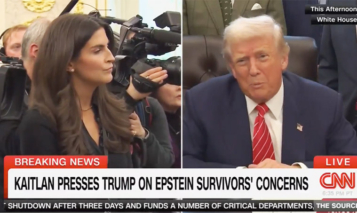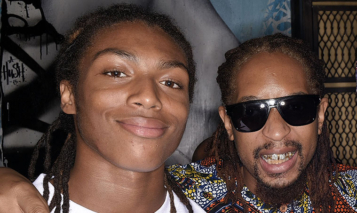
The BET Network booted an award-winning journalist from a Michelle Obama conference for publishing a Q&A with Mrs. Obama without permission.
The urban TV network invited Washington Post fashion critic Robin Givhan (pictured left) to its “Leading Women Defined” conference in Bal Harbour, Fla, with special guest speaker Michelle Obama.
The journalists were given strict rules not to report anything Mrs. Obama said during the “private” conference.
Givhan, who was awarded the Pulitzer Prize for Criticism in 2006, wrote an article using Michelle Obama quotes from the conference and from her husband’s 2008 campaign.
The article which was published on Wednesday quoted Mrs. Obama discussing her campaign experiences in 2008: “I couldn’t count on my husband’s campaign to protect me; I had to protect myself,” she said.
She also included quotes from Mrs. Obama’s Q&A session.
In a moment of vulnerability, Mrs. Obama was quoted as saying she cried like a baby just before welcoming Donald and Melania Trump to the White House in January 2017.
When BET bosses saw the story, they kicked Givhan out of the conference and canceled a panel she was due to moderate.
BET reminded attending journalists that Michelle Obama’s speech was private, but the NY Post’s Page Six accused the network of not playing by its own rules:
“The network posted sections of the interview on its website, while Valerie Jarrett, who conducted the chat, teased on social media that fans should “tune in to BET” to hear all that Obama really said.”
The incident sparked outrage from Black Twitter on Thursday. Some say Givhan, who is black, “violated a sacred trust between women, black women.”
Writer Jamilah Lemieux tweeted, “This is a complete violation of journalistic ethics and Black girl code.”
A BET rep insisted Givhan was “invited as a guest (not working press) to moderate a fashion panel,” and her travel and hotel were paid for by BET.
“She was made aware that it was an intimate conversation in a sacred space of sisterhood and fellowship,” a BET rep said.
But other journalists defended Givhan, saying BET exercised biased judgment in censoring an award-winning black, female journalist.





